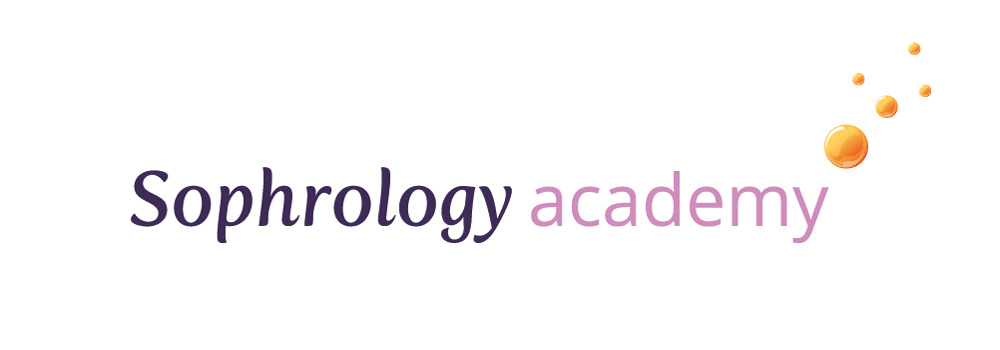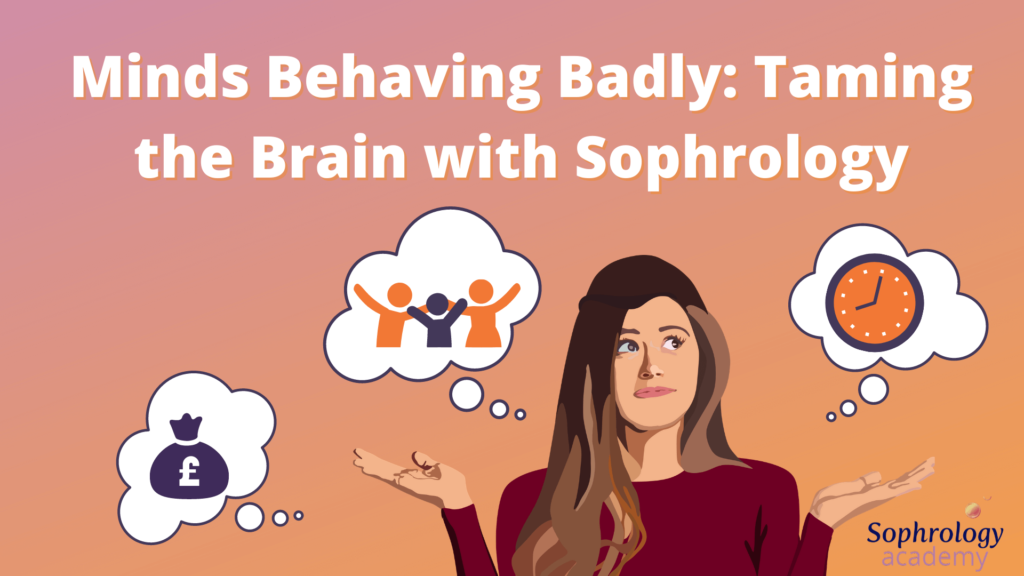If you have ever watched ‘Dogs Behaving (Very) Badly’ on TV in the UK, you will have seen wayward dogs become perfect pooches through simple lessons in control. That control, naturally, comes from the owner who lets their dog know they’re in charge, providing safe boundaries through a disciplined approach.
When dogs misbehave – perhaps streaking across the park like a lightning bolt to the child kicking a football – owners can get stressed, they chase and shout, threaten or indulge – or even bribe with treats…and pets get the wrong message.
What happens then?
At best the dog ignores its owner, but the situation usually escalates into a frenzy – and the ball chase begins:). Eventually, owners become afraid of what their dog will do and become victims of its bad behaviour. Their lives are impacted to the point where some can’t have visitors and others dread going out.
A Misbehaving Mind just needs a little Training!
Many of us find our minds jumping all over the place, chasing one distraction after another, leaping from a worry about this to a doubt about that. ‘What ifs’ and ‘If only’s’ putting their muddy paws all over our nice clean focus. One of the key lessons taught to owners in the TV show is to display calmness and firmness, giving an assertive ‘no’ whilst putting your body in front of the dog – often between the dog and the cause of the problem. And then repeating this routine over and over again.
However, we can learn a simple lesson from this about how to instill some discipline in these beautiful minds that we have!
There are various practices around to train attention, and through my own natural curiosity, I’ve tried several of them over the years. Some use a focus on breathing, and whilst this works for many people, I personally find it rather difficult and uncomfortable. For others like me, a focus on breathing alone is not a strong enough anchor to hold attention – and in no time at all, the mind is dashing across the field again! Luckily there’s another way to regain control effectively.
Step 1: Shift Focus to the Body
Sophrology is my go-to for regaining control of a ‘mind behaving badly’. And, like the disciplining dog owners, I consciously put my body in front of it – between it and the unproductive, negative or worrying thought. I focus on my sensations, and, each time my attention strays, I firmly – but gently – bring it back, keeping my attention focused and inviting more connection to my body and its sensations.
In fact, training your attention through concentration on the body is one of the first things learned by those who practice Sophrology, as it’s the cornerstone of the techniques used in this methodology.
Dr Dan Siegel says ‘where attention goes, neural firing flows, and neural connection grows’ – what our mind does changes how our brain behaves. This can have enduring effects on how we act and who we are.
Step 2: Repeat over and over
It won’t necessarily work easily first time. But just like playing the piano, with practice it comes more naturally and our hands produce with ease the music we intend. A gentle yet disciplined return of attention to the body until we have control over our mind and it responds readily to our will – much like our ‘dogs behaving badly’! That takes practice … and a lot of repetition.
Why repetition? Well, true to Dr Dan Siegel’s quote, the more we practice controlling our responses, the more automatic our processes become, as neurons fire repeatedly, strengthening that specific response.
In short, the brain creates a ‘shortcut’ to our desired mental state.
Making Sense of your Sensations
In Sophrology, we focus on sensations in the body, usually starting with a ‘body scan’, attending to each part of our body and the sensations around it. At first, there might not be much – a little tightness here, a slight pain there, or sensations of contact with clothing. However, as you become more and more attentive to your body, you will start to find that the little areas of tension, niggles and unrest reveal themselves in fuller form.
Importantly, this is where awareness emerges, of the link between the mind – the worry or thought, and the body – the sensations which accompany that mental state. This awareness brings choice, and the possibility to take back even more control.
For example, recently I found my attention being compelled towards worries about a long list of tasks which were growing by the day. At the point I realised this, I brought my focus to a sensation of tightness in my neck and simply rested in that awareness. As often happens, I found the tension melting away as I gained awareness of it, and with it, came a welcome sense of relief. I had taken back my life from the tyranny of the To-Do list!
It’s a very curious phenomenon. There is nothing to do here, just noticing, discovering, and watching as things shift and change without my intervention. I find that this neutral observation – and the resulting changes – help me regain my sense of agency. And this in itself reduces the stress that I feel.
A little Appreciation goes a Long Way …
Returning briefly to our dog training analogy, assuming the owner has now learned to be calm but assertive, you’re now dealing with a dog that is paying attention and listening. And when the dog obeys, what do we do? We show appreciation for their good behaviour – like a kind word, a pat or a cuddle. Consequently, this reinforces a positive connection between our commands and their compliance.
Appreciation is a powerful thing – more so than most of us realise! It is an intensely personal recognition of the good things in our life that can otherwise go unnoticed. It is also an opportunity to identify and grow the positive in your experience – and it is woven into the very fabric of the Sophrology methodology.
We can choose to achieve a Better Behaved Mind
Many years ago, the issue of gaining better control over my focus and attention made me delve deeper into what was a relatively new methodology in the UK. There had to be an easier way to live, I felt. And I found the answer – and more – as I immersed myself in the practice of Sophrology.
I believe the key freedom we need to make use of is where we choose to focus our attention. Most of us are impatient for results, wanting things to improve – yesterday! But a well-behaved mind is in our gift, if we are willing to put the effort into gaining that focus through regular practice. For me, Sophrology enables me to unlock that gift, and an abundance of others, for a richer and more harmonious life.
Liz Murphy
Executive Director, The Sophrology Academy


